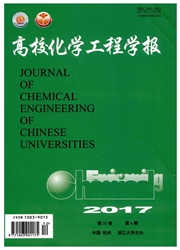

 中文摘要:
中文摘要:
我们发现过氧化氢酶在三孢布拉氏霉菌抵抗氧胁迫(H2O2)中具有一定的保护作用,从而引发菌体合成大量β-胡萝卜素和番茄红素。当发酵培养24h时加入20μmol/L的H2O2,产生的β-胡萝卜素比对照提高了59.4%;当培养36h时加入75μmol/L的H2O2,产生的番茄红素比对照提高了77.7%;在菌体积累这两种类胡萝卜素的同时,过氧化氢酶的活性显著降低,说明过氧化氢酶因猝灭H2O2而大量消耗,同时引发菌体合成较多的β-胡萝卜素和番茄红素,以猝灭氧自由基对机体造成的损伤。这一现象说明在氧胁迫条件下,过氧化氯酶作为信号因子激发菌体合成类胡萝卜素,从而保护菌体正常生长和代谢。
 英文摘要:
英文摘要:
We found that catalase protected Blakeslea trispora form attacking of oxygen stress (hydrogen peroxide). Consequently, the microhe was stimulated and synthesized a great deal of β-carotene and lycopene. The yield of β-carotene produced by adding H2O5 (20 μmol/l) to the 24-hour old cultures of B. trispora reached 521mg/1 and resulted L in 59.4% higher than that without addition; besides, the yield of lycopene produced by adding H2O2 (75 μmol/l) to the 36-hour old cultures of B. trispora reached 350mg/l and resulted in 77.7% higher than that without addition; at the same time, the activity of catalase reduced obviously. The phenomena indicated catalase was consumed for catalysing H2O2 remarkably. Simultaneously B. trispora was triggered and the cells accumulated a large number of these two carotenoids to avoid damage of oxygen stress. These results suggested that as a singnal catalase triggered B. trispora to synthesize a lot of β -carotene and lycopene and protect the microbe.
 同期刊论文项目
同期刊论文项目
 同项目期刊论文
同项目期刊论文
 期刊信息
期刊信息
